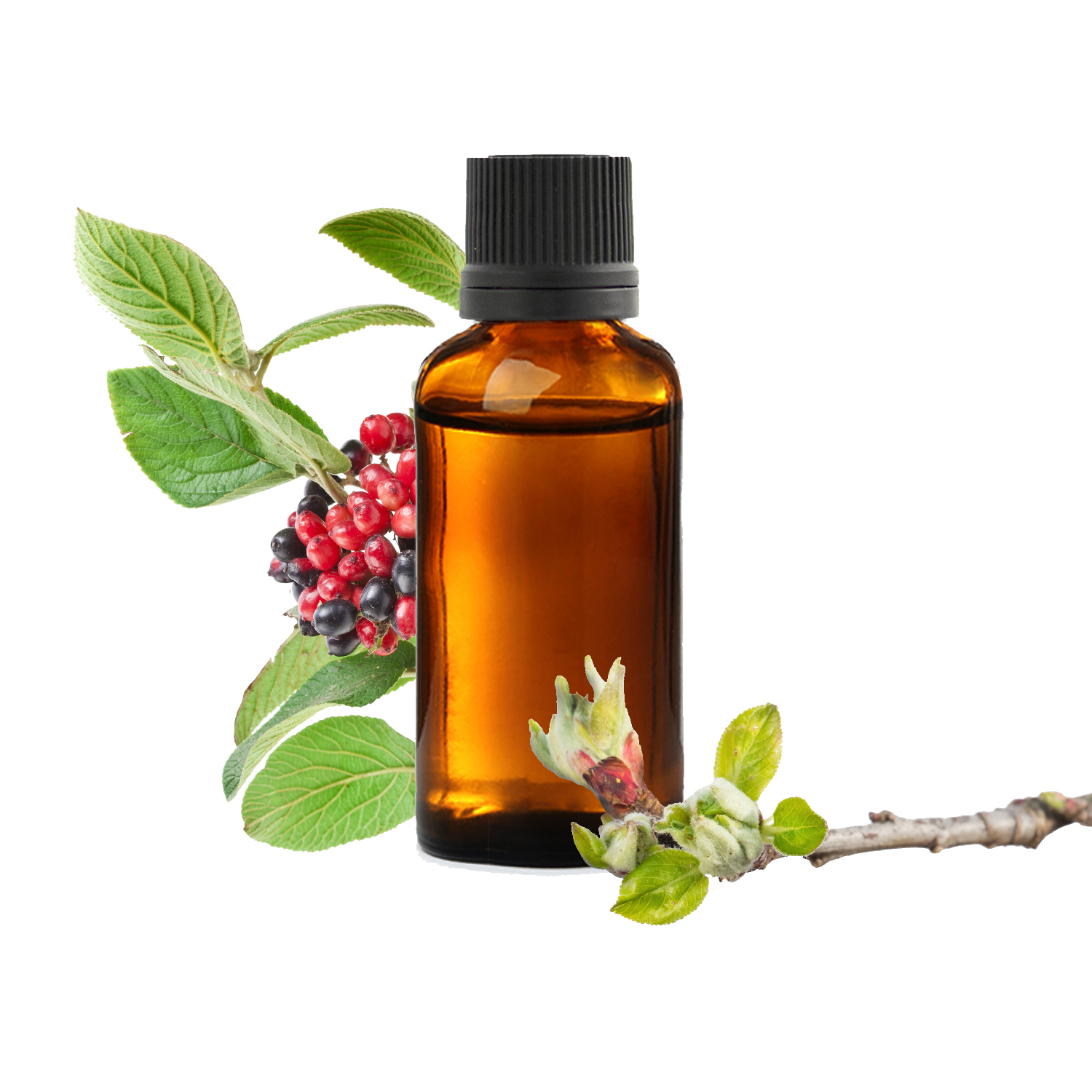
Viburnum bud macerate is a lung drainer useful in cases of allergic or inflammatory manifestations. It is one of the buds of the respiratory sphere, recommended for asthma, bronchitis, dyspnea, rhinitis or even respiratory allergies. It is in fact a very good natural anti-allergic and spasmolytic which, as a basic treatment, can also be used to soothe skin allergies. Latin name: Viburnum lantana L. Part used: fresh buds.
This article was updated on 19/07/2023For what problems should it be used?
-
Immune and respiratory system ++++ : Respiratory allergy, Asthma, Bronchitis, Dyspnea, Rhinitis, Tracheitis, Hay fever
-
Urogenital system +++ : Dysmenorrhea, Painful periods
-
Endocrine system +++ : Hyperthyroidism
-
Blood and lymphatic system ++ : Tinnitus, Hypoacusis
-
Cutaneous system ++ : Dermatosis, Eczema
How to use it alone?
Adults and adolescents : 5 to 15 drops per day in a glass of water, divided into 1 to 3 doses during the day depending on the case, 15 minutes before a meal for 3 weeks. Start with 5 drops and increase gradually:
- or one drop per day up to 15,
- i.e. 5 drops the first week, 10 the second and 15 the last.
Children over 3 years old : 1 drop per day for 10 kilos. Start with 1 drop and gradually increase.
Synergistic uses
Bronchitis
In case of bronchitis, Viburnum bud macerate can be used in combination with that of Poplar, both immunostimulating and anti-infectious, and that ofGlutinous Alder to calm inflammation.
Hyperthyroidism
Viburnum bud macerate can be combined with bud macerate of Bloody Dogwood, also with hypothyroid action.
Main properties
-
antispasmodic, antiallergic :
viburnum bud macerate exerts a particular tropism on the respiratory system and the neurovegetative system. It is sedative, antispasmodic, and antiallergic. It is considered an allergic lung drainer, and inhibits bronchospasm. It thus combats the 3 components of asthma: allergy, bronchial spasm and anxiety. It helps reduce the frequency and amplitude of asthma attacks by "modifying the terrain" but should not be used as a replacement for conventional treatments. It acts on chronic allergies without decompensation, which progress to asthma, eczema and chronic spasmodic rhinitis. Its antispasmodic action is finally exerted on uterine spasms.
-
hypothyroid :
viburnum buds exert a regulatory action on the diencephalo-thyroid axis, which explains its balancing action on the thyroid. It thus fights against hyperthyroidism. It is particularly indicated against Graves' disease.
Precautions for use
- Viburnum bud macerate is a herbal food supplement. It does not replace a varied diet and a healthy lifestyle. It is important to keep it out of the reach of children and not to exceed the recommended daily dose. Dosages must be adapted for young children.
- Viburnum bud macerate is authorized for the whole family, except for babies under 3 years old and pregnant women.
- Store away from light and heat.
What does a good Viburnum bud macerate look like?
Botanical characteristics
- Latin name: Viburnum lantana L.
- Botanical family: Adoxaceae
- Distilled part: fresh buds
Composition
- Composition: Alcohol* 32%, Water, Vegetable glycerin*, Viburnum bud extract (Viburnum lantana L.)*.
Organoleptic characteristics
- Appearance: liquid - possible cloudiness
- Color: greenish amber
- Odor: characteristic, slightly alcoholic.
- Taste: sweet, characteristic, alcoholic.
Was this article helpful to you?
Average grade: 4.7 ( 206 votes)


